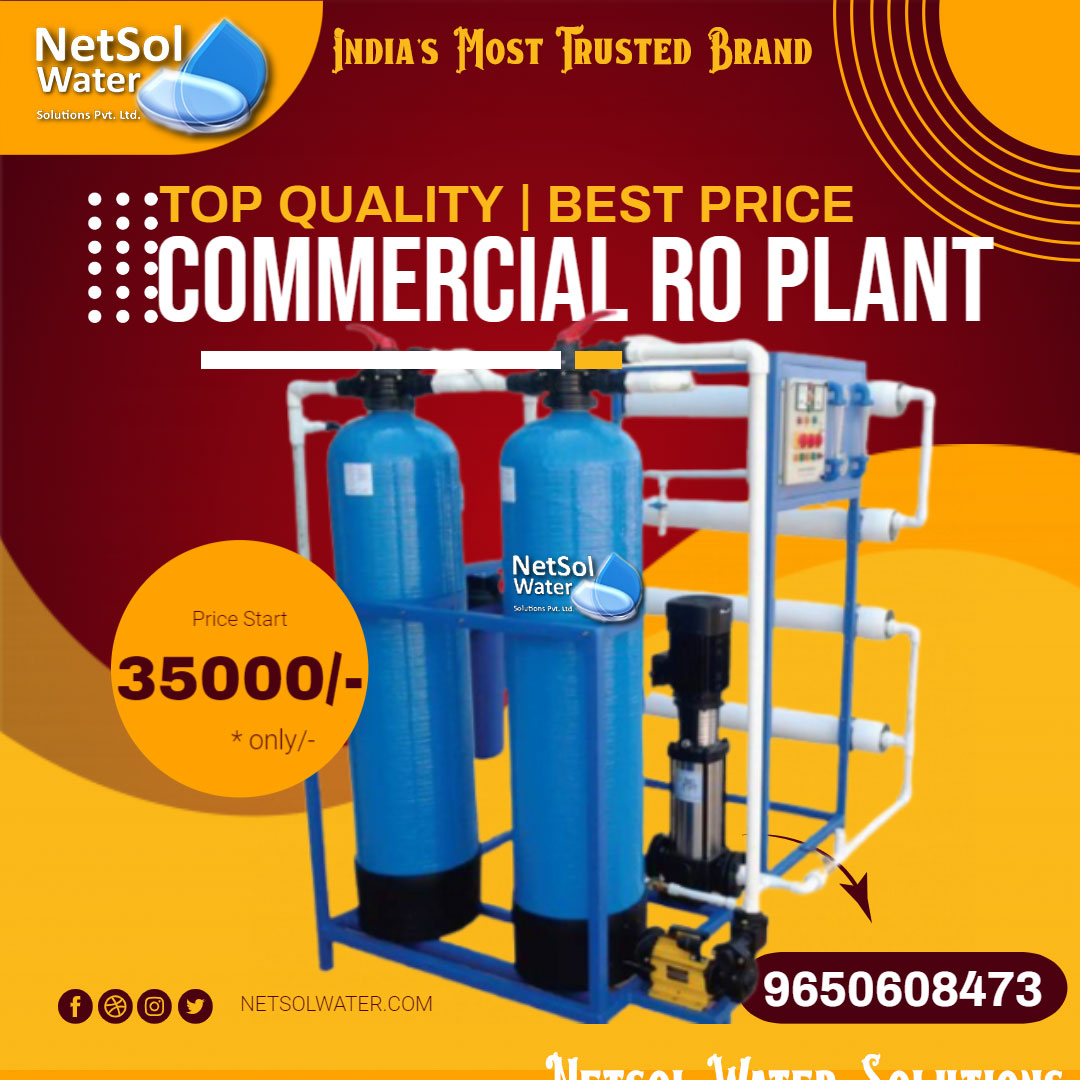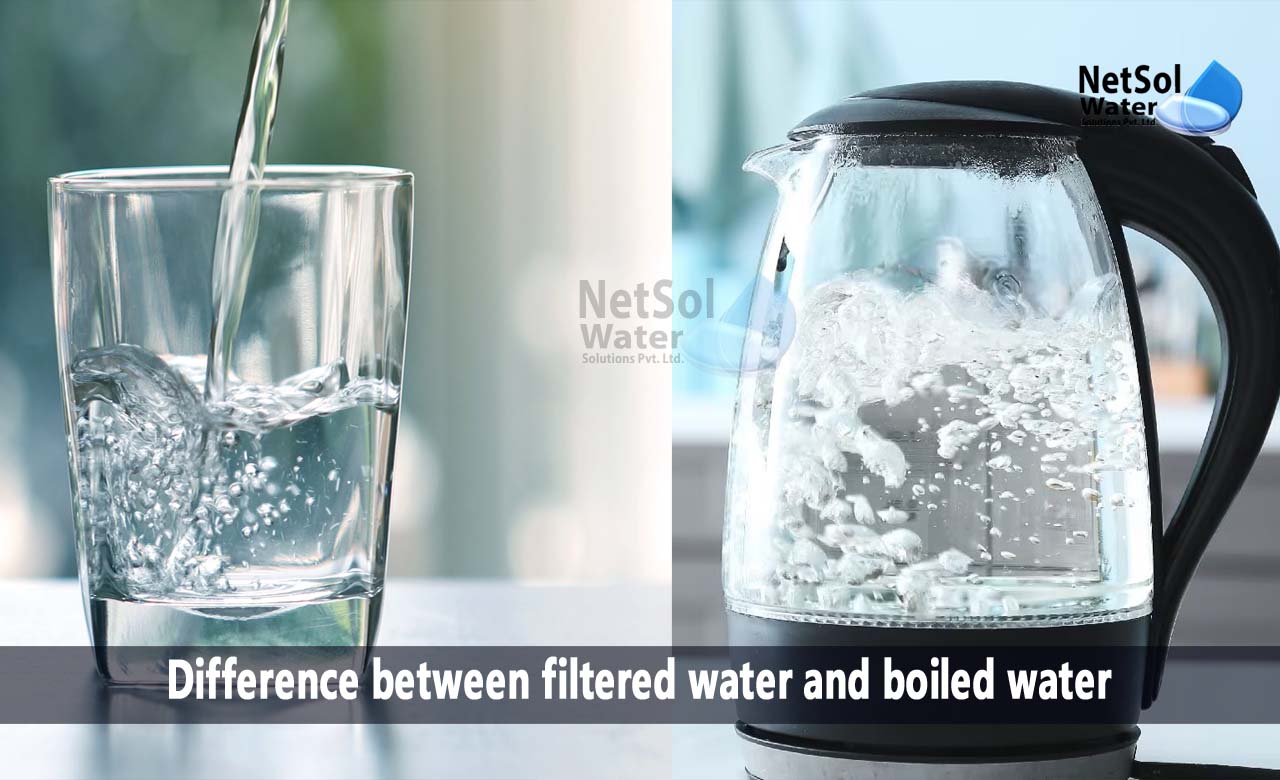The health benefits of water are numerous. However, a lot of people wonder whether there is a difference between consuming filtered water and water that has been boiled.
So let's start by getting the fundamentals right!
Boiling and filtering are the two most popular techniques used by people, to make water clean and disease-free. But which type of water—boiled or filtered—is actually better for your health and offers more benefits?
What are the difference between filtered water and boiled water?
Most of the bacteria, viruses, and germs are eliminated by boiling water. Although, many people still do this and still regard it as one of the best ways, to guarantee that water is safe for consuming, boiling water is no longer sufficient due to rising urbanisation and pollution levels. We require sophisticated methods of water purification because they are more efficient.
One such superior option is filtering drinking water, which can get rid of pollutants, heavy metals, TDS, and other contaminants in addition to impurities. Let's examine the advantages of boiling water before drinking it, how filtered water varies from it, and why purchasing RO Plant for your business is always a good idea.
What is boiling of water?
Bacteria, viruses, and other microorganisms cannot survive above a certain temperature. Because of this, boiling water is an easy, do-it-yourself way to turn water into safe drinking water.
Does this also suggest that this method of drinking water is the healthiest one?
However, harmful chemicals like lead, mercury, arsenic, PFAS, chromium-6, and barium aren't usually destroyed by boiling water. Such chemicals may be harmful, and their removal requires careful filtration and water purification. Although, boiling is an excellent method, there is a chance that the water's flavour will become bland.
What are the benefits of water boiling?
· It destroys pathogens
The benefit of boiling water is that it destroys any pathogens present in it, including bacteria, parasites, cysts, and viruses. If you have the correct tools, you can drink clean, pathogen-free water whether you're camping in the wilderness, or dealing with a water crisis at home.
· It is an inexpensive solution
All you need to boil water is a pot, a heat source, and a source of water. There are no expensive upfront purchases or filters that need to be changed. However, given that boiling water uses a lot of energy, it can end up being pricey over time, in the form of electricity and gas.
What are the drawbacks of boiling water?
· It doesn't kill all microorganisms
Although, germs are killed by boiling water, they are not totally eradicated. You can only rely on the procedure and hope that boiling your water will eradicate any microorganisms, which could be harmful to your health.
· It only focuses on microbes
Boiling water only affects impurities that are "living" in your water. Contaminants, heavy metals, harmful chemicals, and other pollutants are not eliminated. In fact, boiling water can actually increase the concentration of pollutants, because some water will evaporate during the process.
If the drinking water is murky, you should use a different method in addition to boiling, because you're likely dealing with more complicated bacteria.
· We can't instantly drink boiled water
Even, while boiling tap water just takes a few minutes, a huge volume of water may take much longer to cool down completely.
· It doesn't get rid of TDS
Contrary to water filtration systems, boiling tap water does not remove contaminants including heavy metals, TDS, and chemicals. Using RO Plants is one of the greatest methods for lowering water TDS.
Does boiling aid in water purification?
Pure water should only contain water molecules since it is created completely of them. As a result, boiling tap water alone won't make it clean. While chlorine, lead, and other dangerous substances that are commonly present in tap water, remain in the water after boiling, however, bacteria can be removed.
It's critical to comprehend the differences between filtered and boiling water, since only then can we find the best solution for crystal-clear, pure drinking water. Therefore, the only thing that comes to mind when we discuss filtered water is a water purification device.
What is filtered water?
It is water that is processed through a filter. There are various kinds of water filters and purifiers on the market right now, and they don't all work on the same contaminants. The similar idea underlies water filtration, which involves passing water through a filter media that traps specific pollutants, and prevents them from escaping the filter along with the water molecules.
Living microbes are not destroyed by water filtering, though some water filtration processes, such as reverse osmosis or UV treatment, can eliminate the impurities. Pollutants, heavy metals, and other trace impurities present in water are reduced, or eliminated through the use of these membrane processes.
What are the benefits of filtering water?
· It is much quicker procedure
In general, getting filtered water takes far less time than getting boiled water. If you buy a water filter or membrane filter such as RO Plant that connects to the water supply, you can have clean drinking water in a matter of seconds.
· It eliminates a variety of pollutants
Your water can be filtered to eliminate lead, chlorine, microplastics, synthetic chemicals, pesticides, fluoride, nitrates, and other contaminants. None of them will be destroyed by boiling water. Some water purification devices, such as ROs, can eliminate 99.9% of all dissolved solids.
Start drinking clean water right away by locating a nearby RO Plant provider!
When boiling water, you cannot be certain that it is pure enough to consume. A much more dependable alternative, though, is to use a water purification device such as RO Plants.
Choose from a variety of alternatives!
There are numerous sorts of water filtration and water purification devices to pick from, depending on the contaminants you want to remove or the outcome you want to achieve. A variety of filters, including RO, UV, cartridge filters are available from Netsol Water Solutions. There is a water treatment option to fit every need and budget.
These improve the flavour of water!
Investing in a water treatment and water purification equipment is useful. Utilizing filtered water instead of bottled water helps protect the environment, by lowering the quantity of plastic waste generated.
Conclusion
There is much discussion over how to make sure the water you drink is safe and healthful, but filtered water is generally seen as being superior to boiled water.
It has been found that boiling water does not completely purify water since harmful contaminants, like lead and chlorine are left behind. Additionally, using a water purification device offers far more convenience than waiting for water to boil and cool down, because it enables you to drink wholesome, delicious water at one touch.
Get in touch with us for high quality Commercial RO Plants!
Problems with drinking water's purity and compatibility are challenges that we love to resolve. We take into account each issue with the reverse osmosis method of water purification, and create excellent products that can provide high-quality water filtering. Call us at +91 9650608473 or send an email to enquiry@netsolwater.com for further details.




